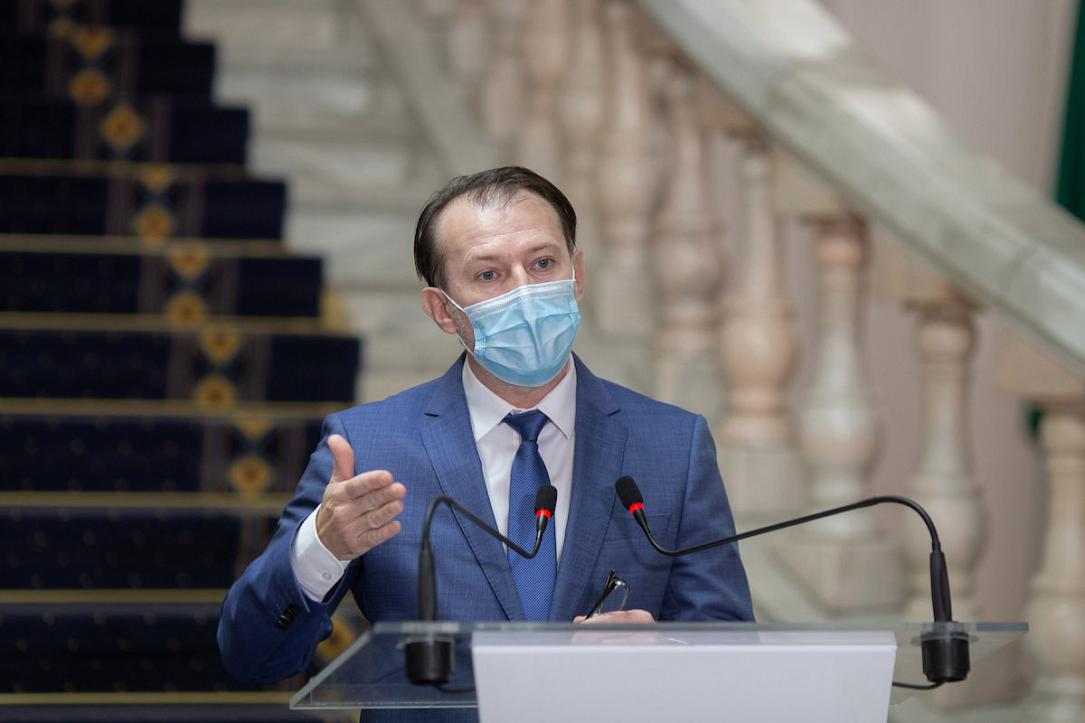Budget planning is the near-term test for Romania's new Government

Romania's new Government will complete the budget planning for 2021, finance minister and most likely prime minister-designate Florin Citu said on Sunday, December 20, quoted by Agerpres.
The new projects will be known, and "funds will be re-assigned [among ministries]" in the next year's budget planning, "after the negotiations for the majority coalition will be finalized," Citu added.
The budget planning for 2021 will be the first test for the new Government in terms of strategy and its capacity to pursue its policies in the Parliament, where it holds a fragile majority. Citu mentioned public finance, besides the European funds and digitalization, as the chapters already negotiated by the would-be ruling coalition partners.
Romania's general election result points to continued political uncertainty and hence a still-challenging policy-making environment, Fitch Ratings said immediately after December 6 ballot. The on-going talks for a new majority addressed only to a small extent the rating agency's concerns, which most likely remain nearly intact until a new government provides more relevant answers.
"The need to pass a 2021 budget will be a near-term test of the next administration's cohesion and an indication of likely fiscal policy settings," the rating agency said.
More than sketching a budget planning for 2021, minister Citu as would-be prime minister, will have to get a vote in Parliament to reverse the 40% pension hike and the doubling of the child allowances. These two measures, passed by the former Social Democrat majority in the Parliament, would significantly weaken Romania's financial position and trigger downgrades by the major rating agencies. With no ballot in the near term and majority support in Parliament, the new center-right coalition can reverse these measures but will consolidate Social Democrats' populist rhetoric.
The first topic related to the budget touched by minister Citu in his statements on December 20 regards the minimum statutory wage.
There should be further tripartite discussions with employers and trade unions, as the Finance Ministry considers several options, minister Citu said.
But this is only one of the details, probably not the most delicate, that have to be first settled between the National Liberal Party (PNL) and its new ruling partners.
Another delicate issue is the taxation of the minimum wage, a topic that is viewed differently by PNL and its main partner, the reformist alliance USR-PLUS. The reformist parties have vocally advocated for no tax or social security contribution levied on the minimum statutory wage. This is an extreme view even compared to the Social Democratic Party (PSD) that advocates for no income tax (but keep social security contributions) on the minimum wage. The difference is quite important both for the budget revenues and for the recipients' future pensions when calculated based on their contributions. Under the USR-PLUS radical view, the budget will suffer a loss of revenues of some RON 12 billion (EUR 2.4 bln) or over 1% of GDP. Roughly one-quarter of the employees in Romania are paid the minimum wage. Furthermore, the employees with higher wages would have waived part of their taxes and contributions as well.
"We have seen some estimates. We have not all of us agreed on the same formula. It's the new ruling coalition that will ink the final draft that we will unveil, I hope, as soon as possible. We must finish the negotiations as soon as possible to have a Government sworn in. Once we have a Government, we will know what step to take about the minimum wage as of January 1. (...) The impact [of this decision] will be on the next Government. It would be somewhat dishonest for this Government to make a decision. We did not decide on the 2021 budget as well," Citu explained, speaking from his position of acting finance minister.
Minister Citu had previously said that his ministry inked a budget draft for next year and implied that the document would be signed and submitted to the Parliament by the next Government for rather political reasons. At that time, however, the PNL was expecting to get a higher score in the general elections and secure continuity for the Government's policies.
Although PNL will control the Finance Ministry, under the agreement with its ruling partners (reformist alliance USR-PLUS and ethnic Hungarians' UDMR), the ruling coalition's more balanced structure requires a thorough revision of the Liberals' pre-electoral policies.
editor@romania-insider.com
(Photo source: Inquam Photos / Ilona Andrei)













